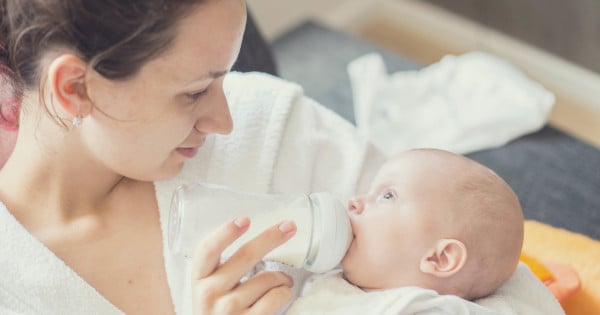
By Amy Brown, Swansea University
Breastfeeding can be a minefield. From women being asked to cover up or leave when feeding in public places, to others feeling that they are being looked down on by some if they don’t breastfeed, it seems that this natural process is constantly in the press.
Every so often, an article about a woman breastfeeding her older child, up to the age of five or six, causes a furore, as parents, experts and others debate whether the practice is “healthy” for the child. Remember that cover of Time magazine?
Mums share their late night confessions. Post continues after video.
But why? Does breastfeeding past infancy increase a child’s risk of illness? No. Does it damage the child emotionally in some way? No. Does it cause harm to others? Again, no. It actually does the complete opposite: in fact, the World Health Organisation recommends that breastfeeding is continued up to two years and beyond. Furthermore, the American Academy of Pediatrics has stated:
There is no upper limit to the duration of breastfeeding and no evidence of psychologic or developmental harm from breastfeeding into the third year of life or longer.
These statements are born from good reason. Although people in the West may not be used to seeing children breastfed, this doesn’t mean that it isn’t biologically normal. Many non-Western societies have a median breastfeeding duration of around three years and some longer than that. Studies comparing when non-human primates stop breastfeeding suggest it is around the time of the first permanent teeth –- that’s around five to six years old in human children.



Top Comments
Well, kids can get too old for a bottle or a dummy, so why not a boob?
I think it might have to do with the affect on the teeth. From what i read, breastfeeding doesn't have the same affect.
Yes. I was born in Fiji and still spend a lot of time there. Extended breastfeeding is absolutely normal there. I breastfed my daughter until she was 20 months and no one blinked an eye. In fact I was congratulated numerous times for doing so. Many of my friends there breastfed well past 1 or even 2 years. I could also breastfeed in public whenever I was there, wherever I wanted to.